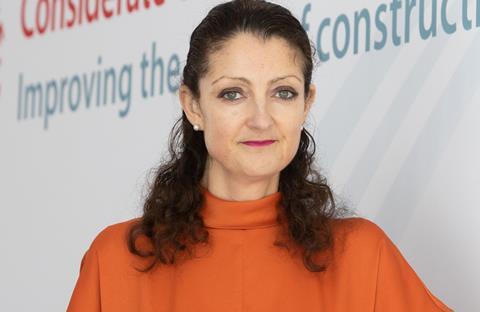Survey of professional planners finds nearly a quarter subject to online abuse from trolls, with some leaving the profession
Nearly nine out of 10 planners say social media is fuelling misinformation about local planning issues, with almost a quarter of staff subject to abuse, according to a new survey.
The survey of over 900 planners, conducted by the magazine of the Royal Town Planning Institute (RTPI), found that 87% of planning staff believe social media is fuelling misinformation around local planning issues.

The findings come in the wake of the airing of the Clarkson’s Farm documentary, which has prompted reports of several death threats having been made on social media against people opposed to the proposed expansion of Jeremy Clarkson’s farm shop depicted in the hit Amazon Prime show.
The survey found nearly a quarter of planners told the RTPI they had either “regularly” or “occasionally” been targeted through social media with insults, harassment or threats. A further 20% said they had experienced these things “rarely”.
In addition, two fifths of planning staff said that social media was impacting upon their well-being, with anecdotal reports to the survey of decision to leave the public sector or delete social media accounts.
>> See also Government consults on rise in planning fees to help stretched departments
>> See also Gove’s retreat into nimbyism spells political trouble for the Tories
The survey comes amid increasing politicisation of planning issues at a local level, with a number of councils, such as Guildford and Uttlesford, having seen the election of anti-development “residents” parties determined to oppose housebuilding plans. This has combined with deteriorating resources in local authority planning departments following years of local government spending austerity, plus the move to working from home, to deliver a sharp a drop off in the performance of a number of planning authorities, putting them under increasing pressure.
Figures release last year showed that planning permissions fell to their lowest level for a decade in the third quarter of last year.
One respondent to the survey said: “[Social media] harms the reputation of the planning service and more and more online attacks are being directed against individual officers. That does no one’s mental health any good.”
Another respondent said: “Campaign groups through Facebook often stoke opposition to planning applications but rarely if ever give people the actual facts around an application, these are then shared and shared with the vast majority of people never actually looking at the application properly.”

Sue Bridge, president of the RTPI, said that while social media could help raise community awareness of local planning decisions, “all too often we are seeing the opposite effect, with the spread of misinformation bleeding into public opinion.”
Victoria Hills, chief executive of the RTPI, said the survey findings painted “an alarming picture of the harassment that planners are facing online today.”
“Our concern is that the spread of misinformation about local planning issues is leading to further stress for Local Planning Authorities and the wider public sector, who are already struggling to deliver services after a decade of cuts.”











No comments yet